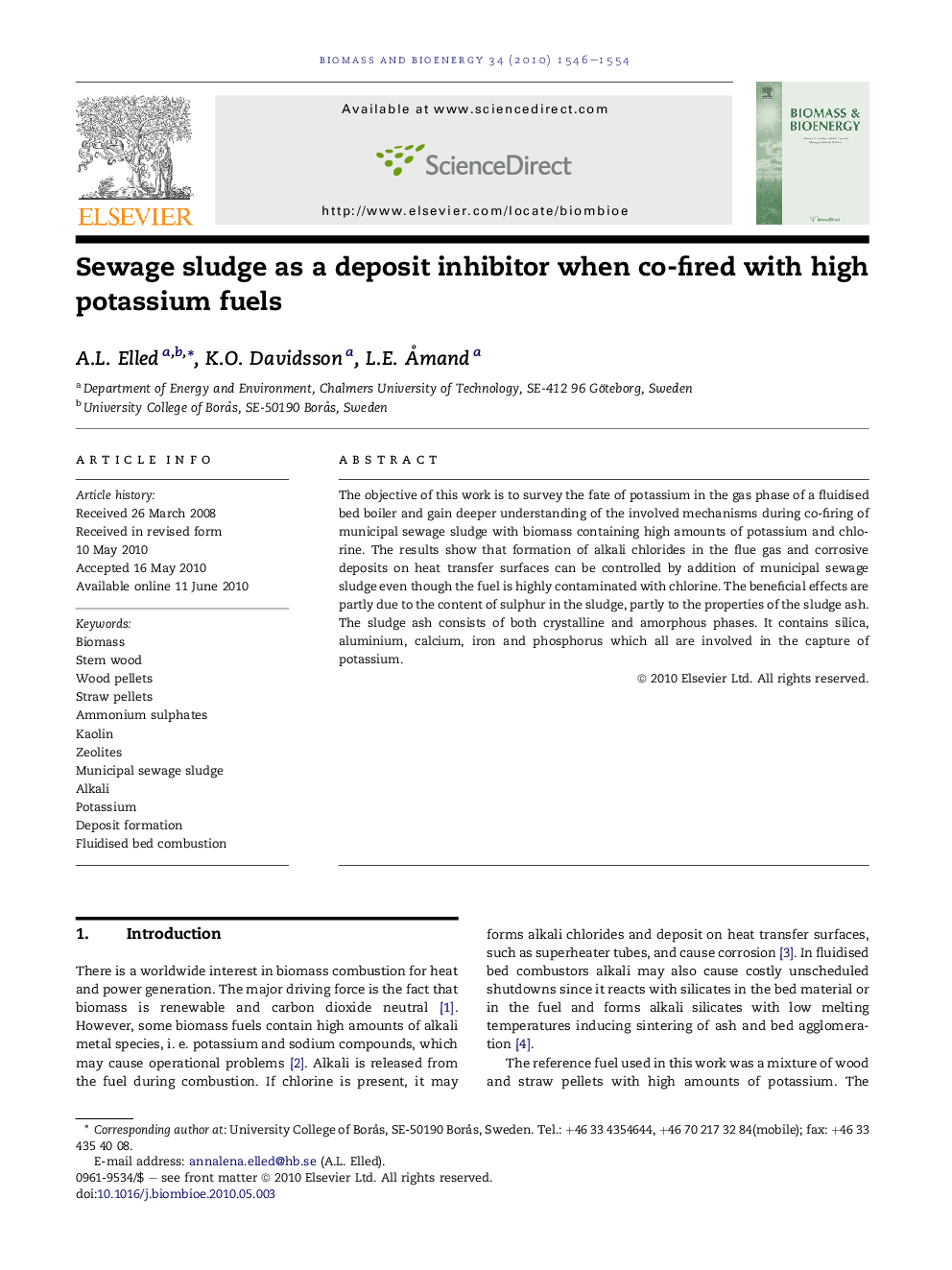| Article ID | Journal | Published Year | Pages | File Type |
|---|---|---|---|---|
| 678174 | Biomass and Bioenergy | 2010 | 9 Pages |
The objective of this work is to survey the fate of potassium in the gas phase of a fluidised bed boiler and gain deeper understanding of the involved mechanisms during co-firing of municipal sewage sludge with biomass containing high amounts of potassium and chlorine. The results show that formation of alkali chlorides in the flue gas and corrosive deposits on heat transfer surfaces can be controlled by addition of municipal sewage sludge even though the fuel is highly contaminated with chlorine. The beneficial effects are partly due to the content of sulphur in the sludge, partly to the properties of the sludge ash. The sludge ash consists of both crystalline and amorphous phases. It contains silica, aluminium, calcium, iron and phosphorus which all are involved in the capture of potassium.
